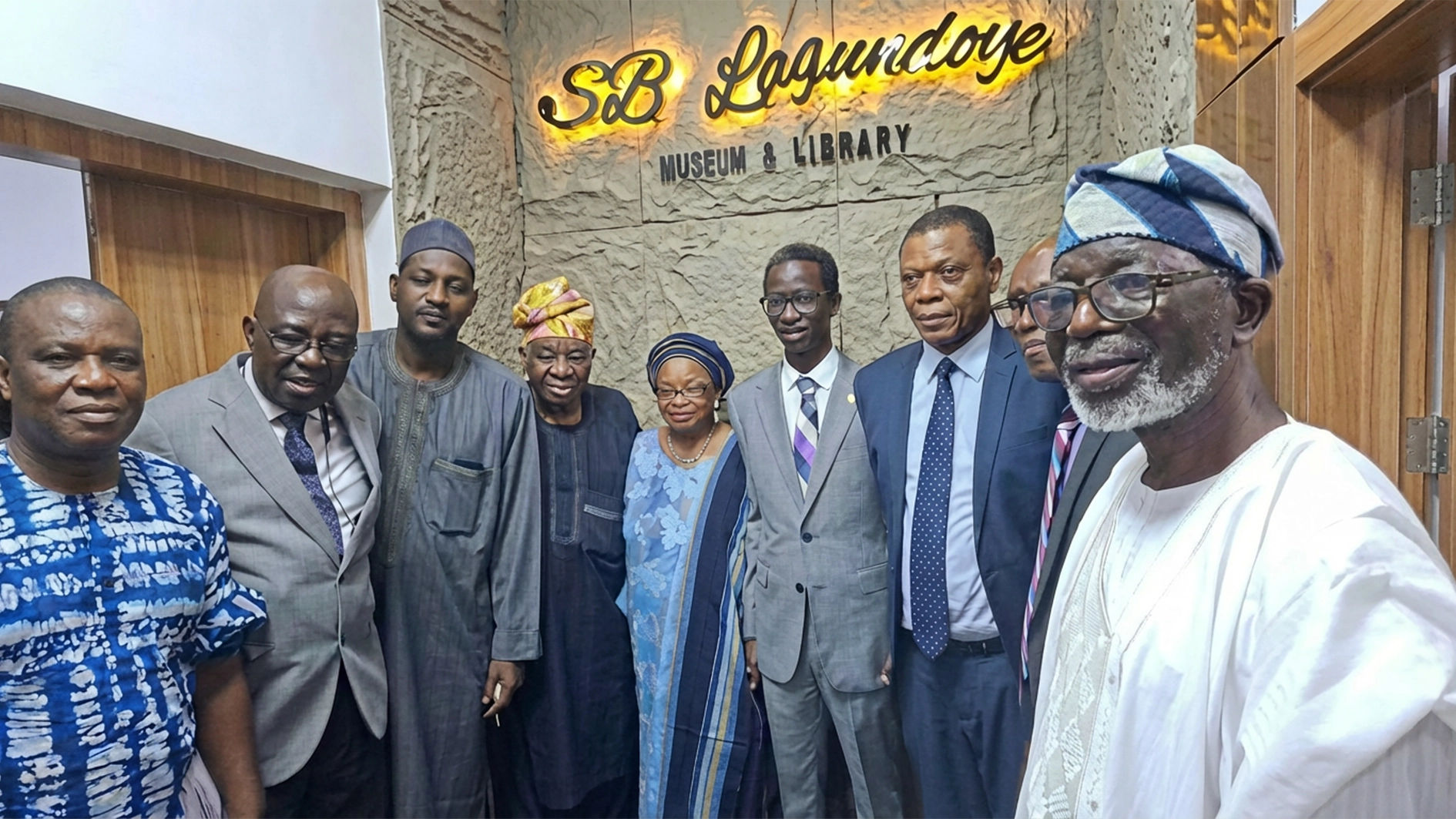
Amid the mind-boggling statistics of admission seekers by the Joint Admission and Matriculation Board (JAMB), Head, Education Desk, IYABO LAWAL writes that the examination body must do more to show that it is not just a revenue machine for the government but a world-class efficient admission hub to provide timely opportunities for Nigeria’s teeming youths yearning for higher education
Every Nigerian youth wants to go to a university. It is every parent’s dream that their children graduate from a good university to ensure that they have a better life than theirs. That is a progressive situation except that the snag is everyone is facing the same direction: they want to attend the same tertiary institutions.But existing infrastructure, policies and political realities are becoming a stumbling block for the hundreds of thousands of the country’s youths to achieve that dream as it is easier for a camel to pass through the eye of a needle than for secondary school leavers to gain admission into some universities and polytechnics in Nigeria. To illustrate: only 30 per cent out of the 1.7 million candidates who wrote the Unified Tertiary Matriculation Examination (UTME) were admitted in 2017.
This reality is further illustrated by the registrar of the Joint Admissions and Matriculation Board, Prof Ishaq Oloyede’s recent startling statistics. Oloyede said despite complaints of poor access to tertiary education in Nigeria, 44.7 per cent of admission spaces were not taken up by candidates in the last admission exercise.He added that of the more than one million (1,025,487) spaces available in universities, polytechnics, colleges of education and Innovations Enterprise Institutions (IEI)– both private and public – only 566,641 were filled and 457,846 were unused.
To address this problem of unused spaces, Oloyede said JAMB would provide a virtual market space for institutions to shop for students not admitted by their first choice institutions. But that ambitious and futuristic idea remains to be seen whether it will work.
Few weeks ago, despite complaints of poor access to tertiary education in Nigeria, Oloyede had claimed that 44.7 per cent of admission spaces were not taken up by candidates in the last admission exercise. Speaking at the 2018 policy meeting for tertiary institutions in Nigeria, the man at the helm of affairs of the examination body revealed that colleges of education had the highest number of unused slots, 290,097 of 364,722. Universities had 119,878 unused spaces (of 538,269) while polytechnics had 39,404 (of 112,437) and IEIs, 8,467 (of 9,059).
[related ids=”700217″]
However, where there is a will, said the JAMB boss, there is a way. “If any institution does not do its admission on time, we will withdraw the names of the students and transfer them to the market place where others can pick them. When we are doing first choice admission, do your own even if you are not ready to resume,” he had said.
In the same breath, the Minister of Education, Adamu Adamu, called for more transparency in the mode of admissions, saying, “Please, let the qualities of transparency, honesty, sincerity, equity, loyalty, and commitment to nation building be our guiding principles. We should be dissuaded from doing any official business under the table.“We have extensively consulted on the way forward and I therefore urge each institution to abide by the regulations. Some of you carry out your duties with full understanding and knowledge that some of your actions cannot stand the test of integrity, as some of the infractions you endorse and approve are irregular.”
From the foregoing, JAMB and the ministry of education have demonstrated the will, so have they shown the way. Stakeholders in the education sector, however, are not sure if prospective students and parents will applaud the formula put forward by Oloyede. Examining the JAMB boss’ recipe to filling up the usually unused slots may shed more light on the crisis that has continued to riddle Nigeria’s tertiary institutions, especially the universities.
JAMB has recommended to candidates who want to increase their chance of being admitted into a tertiary institution of their choice to pay more attention to the statistics on the performance, number of applicants to their preferred institutions, and changes introduced to the Central Admissions Processing System (CAPS).
They can draw inference from the fact that 662,478 of the 1,653,127 candidates that registered for the 2018 UTME chose only 30 institutions (universities, polytechnics, colleges of education and Innovations Enterprise Institutions [IEIs), out of about 662 higher education institutions in the country. The universities had 94.29 per cent (1,558,686) of the candidates who chose universities as their most preferred institutions to attend. Of that figure, 38 per cent (607,367) applied to 10 out of 163 universities.
That information, according to JAMB, indicates that the top 10 most-subscribed universities are University of Ilorin (86,401); Ahmadu Bello University, Zaria (74,635); University of Benin (70,322); University of Nigeria Nsukka (66,486); University of Lagos (62,436); Bayero University, Kano (56,261); Obafemi Awolowo University, Ile Ife, (48,646); Nnamdi Azikiwe University, Awka (48,554); University of Ibadan (47,544); and the University of Jos (46,082).
In a related development, the top 10 polytechnics, which got 39,013 out of the 69,712 applicants who chose polytechnics as their first choice institutions are Yaba College of Technology (5,275); Federal Polytechnic, Ilaro (5,258); Federal Polytechnic, Offa (4,456); The Polytechnic, Ibadan (4,075); Federal Polytechnic, Ede (4,047); Kaduna Polytechnic, Kaduna (3,922); Lagos State Polytechnic, Ikorodu (3,629); Kwara State Polytechnic, Ilorin (3,041); Federal Polytechnic, Oko (2,781); and the Federal Polytechnic, Nekede (2,529).
For the colleges of education, 10 colleges had 15,932 of the 24,524 applications for candidates. The colleges are Federal College of Education, Zaria (2,836); Federal College of Education (Technical), Potiskum (2,244); College of Education, Akwanga (1,950); Aminu Saleh College of Education, Azare (1,652); Federal College of Education, Kano (1,559); Federal College of Education (Technical), Gombe (1,453); College of Education, Gidan-Waya (1,303); College of Education, Waka-Biu (1,022), Isa Kaita College of Education, Dutsinma (968); and FCT College of Education, Zuba (945).
In the IEIs, the 10 most subscribed institutions, with 166 of the 205 applications are Pefti Film Institute, Lagos (26); Global Maritime Academy, Ogoni-olomu, Ughelli South, Delta State (25); Conarina Maritime Academy, Abraka, Delta State (24); Unicem Community Development Initiative Training Institute, Mfamosing, Cross River State (21); Complete Computers and Technology Institute, Benin (18); Mario Institute of Hospitality Management and Entrepreneurship Education, Nsukka, Enugu State (15); National Film Institute, Jos, Plateau State (13); Nigerian Television Authority, Television College, Jos, Plateau State (10); Ibrahim Shehu Shema ICT and Business Institute, Katsina, Katsina State (9); and Digital Bridge Institute, Oshodi, Lagos State (5).
JAMB’s statistics also showed that of the about two million that sat for the Unified Tertiary Matriculation Examination (UTME), only 414,696 candidates scored 200 and above and only 211,676 had the required O’ Levels for their courses. In view of this, Oloyede urged the institutions to use various assessments in admitting their students, not just the UTME.
“There is the need for multilevel assessment in arriving at the cut-off mark institutions should use. We are now tracking best graduating students in every institution viz-a-viz their UTME score. The UTME is not the cut-off mark. It is the minimum score to which you should add other factors before you arrive at the score,” he had advised the schools.The CAPS was first introduced in 2017 and provided JAMB candidates the platform to know their admission status online and apply multiple times to change courses to tally with their scores. However, experts have said the system is open to abuse and that it is not transparent.
They argued that the CAPS does not guarantee admission, especially so because individual tertiary institutions do not work in tandem with the examination body. Well, that is in the past, said Oloyede. According to him, the system is now responsive to transparency and prevents abuse. Oloyede added that JAMB has mandated tertiary institutions to conclude their first-choice admissions at a given period of time to ensure transparency and avoid abuse in the admission process using CAPS. He explained that once that period is over, other candidates not admitted would be placed in a ‘marketplace’ where they can get admitted by other institutions.
“At the end of the first choice period, all candidates not admitted would be pulled out of the institutions’ platform on CAPS and be made available to other willing institutions. Any candidate who has chosen an institution as 2nd, 3rd or 4th choice does not need any change of choice or payment to JAMB to be considered for admission during the period of the 2nd choice admission,” the JAMB boss noted.
In 2018, JAMB is expected to notify institutions about the percentage of catchment admission and list of qualified candidates from catchment area not yet admitted; percentage of ELDS admission and list of qualified candidates from ELDS not yet admitted. It will also provide the national spread of candidates across the states and the Federal Capital Territory to achieve a minimum of 0.05% of quota and percentage of international candidates admitted.
For the examination body, interesting moments lie ahead with no certainty over its ambitious move. However, experts believe that JAMB is demonstrating more interests in ensuring that admission seekers are successful in their desire to acquire higher education. While its ability to generate huge revenue for the federal government in the last couple of years has never been in doubt, it is faced with the daunting task of ensuring that all the admission slots are effectively filled amidst an atmosphere of transparency.
[ad unit=2]






